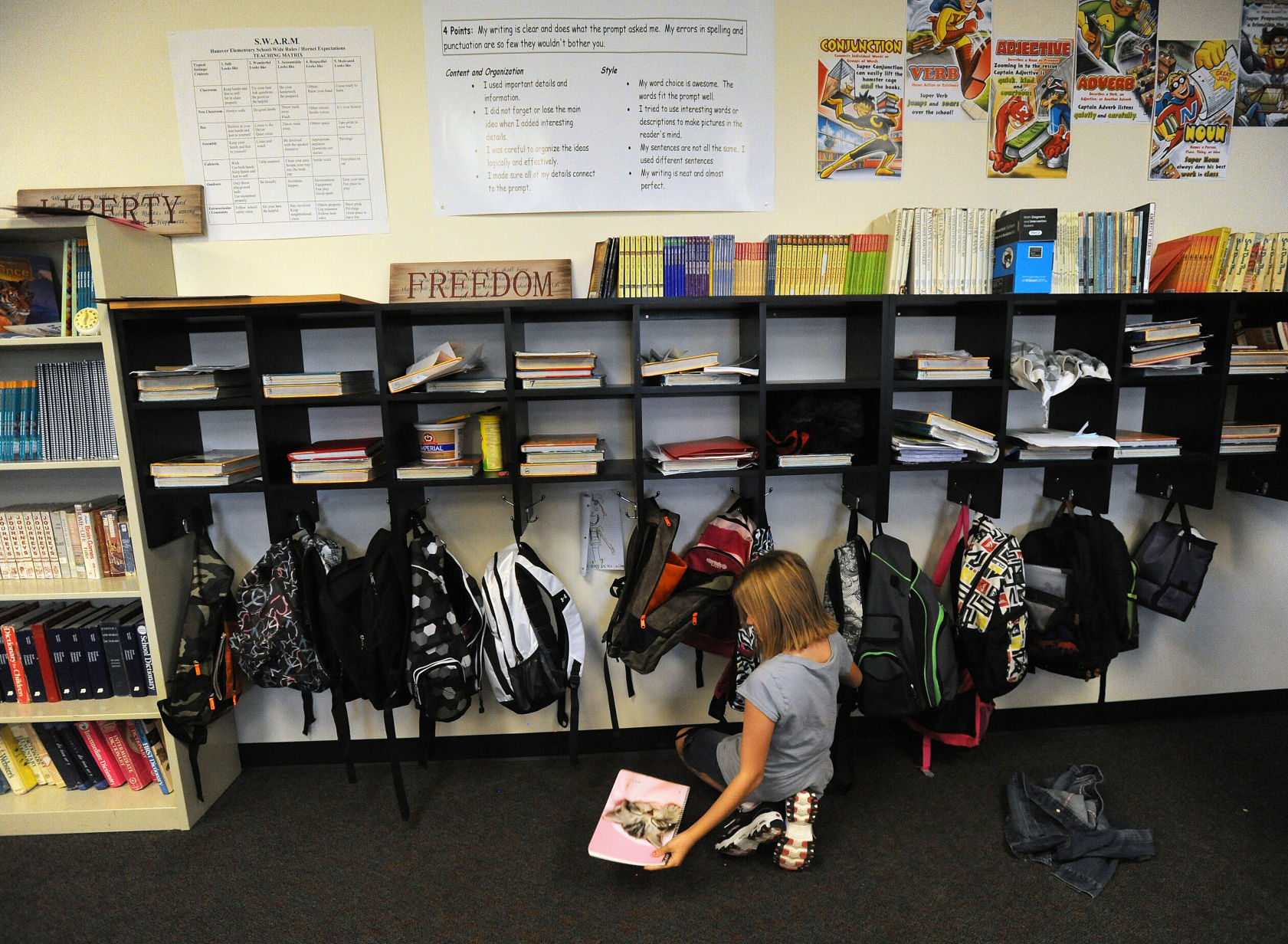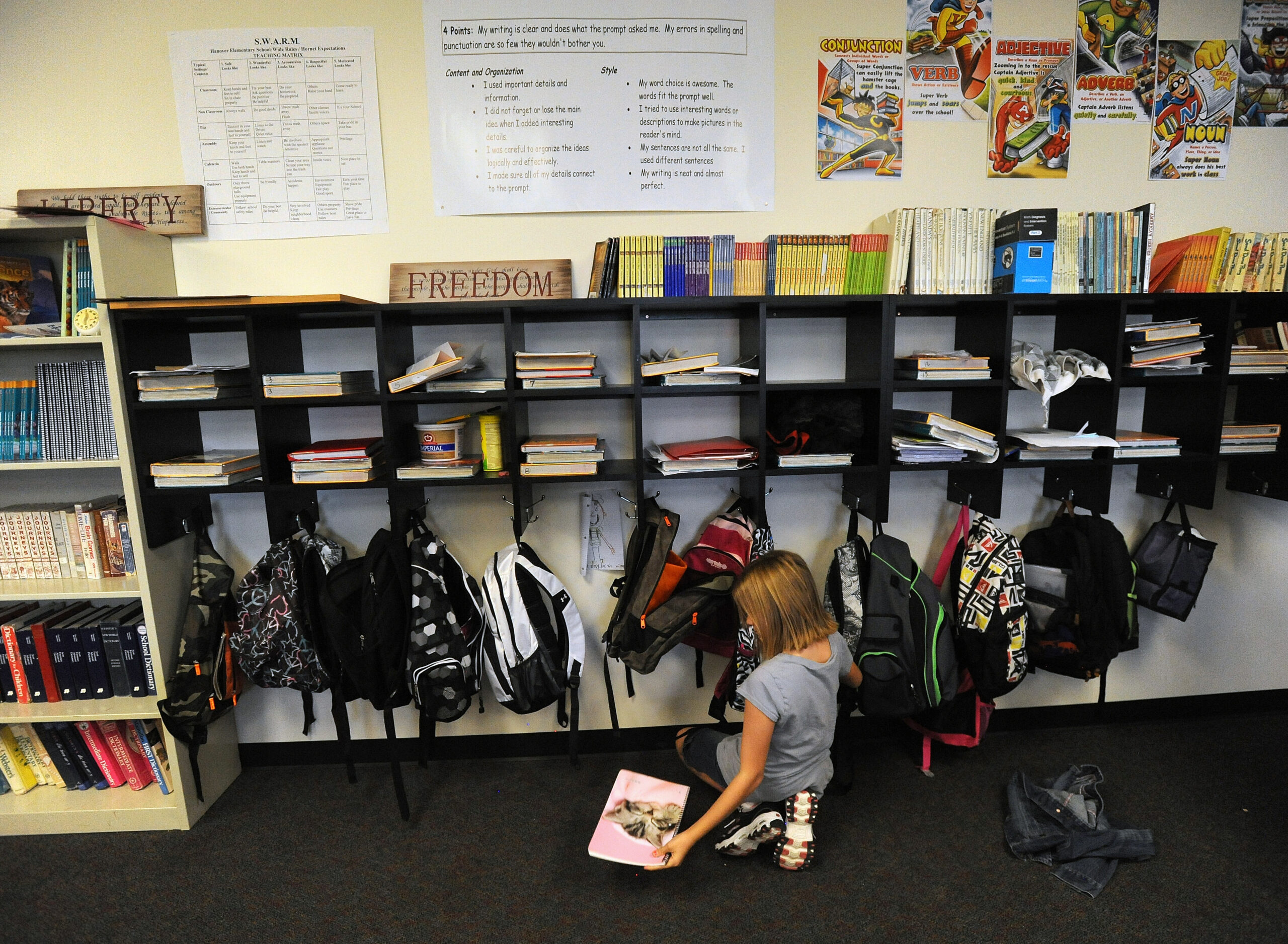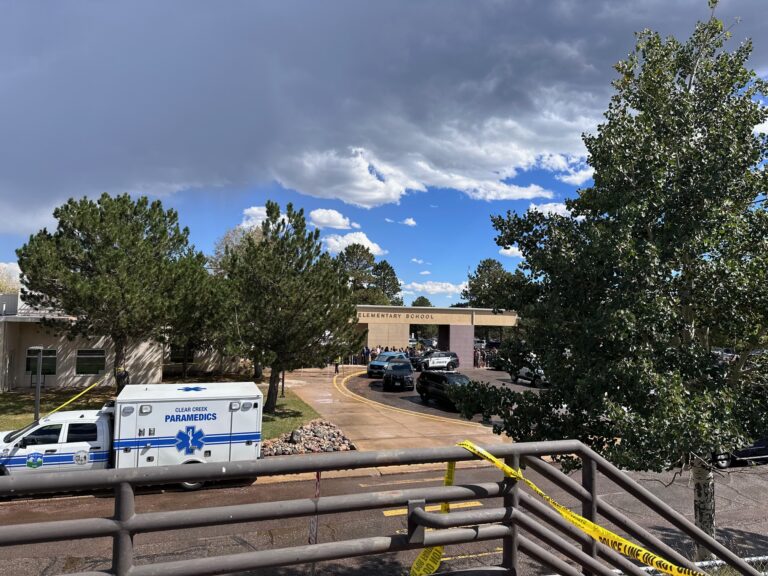Colorado Springs superintendents revising state’s school funding formula

The way Colorado public schools are funded under a nearly quarter-century-old formula is no longer fair, say Pikes Peak region superintendents, who are in a grassroots effort to modernize the Public School Finance Act of 1994.
“Some districts are winners, and some are losers right now,” said Grant Schmidt, superintendent of Hanover School District 28, a small rural district southeast of Colorado Springs.
About 60 top leaders from districts across the state worked at a meeting last week in Castle Rock to finalize what they say is a more equitable method to divide funds among Colorado’s 178 public school districts and charter schools.
“This creates where we’re almost all winners,” Schmidt said.
The proposal presents a “more straightforward calculation,” he said, and would give weighted consideration to special-needs students, students living in poverty, English language learners, gifted and talented students and preschoolers.
“The economic condition of our state, as well as the makeup of our students, is significantly different than in 1994,” Schmidt said. “We need to more accurately fund based on our true student needs.”
While the current formula “has mechanisms of support for at-risk populations, it also is not refreshed,” said Keith Owen, superintendent of Fountain-Fort Carson School District 8 and former deputy commissioner of the Colorado Department of Education. “This distributes the funding in a better way.”
Mandatory standardized testing for students and educator accountability were not part of the system in 1994, said Walt Cooper, superintendent of Cheyenne Mountain School District 12, who was recently named the 2018 Colorado Superintendent of the Year.
“There’s no connection between the responsibilities placed on schools from communities, state policymakers and the feds, and the manner in which schools are funded,” he said.
Superintendents have been working on a funding proposal for four years and on this model for 18 months, said Cooper, one of the group’s leaders.
They will need legislators to bring forth a bill to carry the idea. State Rep. Dave Young, D-Greeley, has said he would sponsor such a bill, according to Cooper.
“He has until the end of January to introduce a bill for this session,” Cooper said.
The process is challenging, Owen said, because Colorado has a wide range of school districts, from large urban to medium-size suburban to small rural districts.
The current formula has “arbitrary cutoffs for size,” for example, Owen said, while the new rendition calls for “recognizing and adjusting for cost differences among districts related to size, geography and the cost of doing business.”
The superintendents’ work is one cog in Colorado’s complex school finance wheel. A Legislative Interim Committee on School Finance, established during the last General Assembly session, consists of 10 state legislators who are studying the issue and could introduce changes.
In a Jan. 9 presentation to the committee, Cooper said superintendents have been academic and pragmatic in their approach to the formula – as opposed to political. That means focusing on students’ needs and schools’ ability to deliver.
A revised formula would depend on more state money for public schools, Cooper said, which lawmakers also would need to figure out. The superintendents said they aren’t venturing into that quagmire.
Most money for state public schools is provided through the school finance act.
Gov. John Hickenlooper’s proposed 2018-19 budget reflects a school finance request of $6.9 billion, an increase of $343.4 million, or 4.5 percent, over the current fiscal year.
But lawmakers have reduced education funding by nearly three-quarters of $1 billion since 2010, down from levels voters agreed to in 2000, to reverse budget cuts made in the 1990s.
So Colorado’s per-pupil spending lags several thousand dollars behind the nation’s average. In 2015, for example, Colorado ranked 39th among states for school funding, according to the U.S. Census Bureau’s Annual Survey of School System Finances.
The Education Week Research Center gives Colorado a D-plus in school finance in its 21st edition of “Quality Counts,” ranking it 40th in the nation among 50 states and the District of Columbia.
“Our goal is to work into the law the funding and the distribution model and stand ready for advocates, legislators who share the value of more investment in K-12,” Cooper said.
“When you look at what districts across the state have had to do away with in terms of program reductions or cuts going back to 2010, what we have now is not adequate.”
Another indication that the system isn’t working, he said, is that more than 100 Colorado school districts have four-day weeks.
“Those decisions were not instructionally based but primarily monetarily based,” Cooper said.
Schmidt, whose district in Hanover is on a four-day schedule, said the short week helps rural districts save on utilities and transportation costs.
Hanover D-28 now is adjusting its budget to balance it for this school year. “But to maintain the programs we have, within a year, if not two, we will be deficit spending,” Schmidt said.
“What’s nice about this grassroots effort from the superintendents in Colorado is the fact that we are all in agreement. I’d be surprised if we didn’t see 100 percent support.”
Said Owen: “Our hope is that the Legislature listens.”













